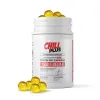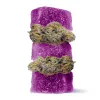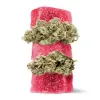Cannabis, a plant known for its diverse properties and producing smooth psychoactive effects, houses an array of compounds collectively termed cannabinoids. Amidst this complex profile, tetrahydrocannabinolic acid (THCA) emerges as a precursor to the famed psychoactive agent THC.
Tetrahydrocannabinolic acid (THCA) is a non-psychoactive compound abundantly present in raw cannabis. It serves as a foundational element, undergoing transformation into THC when exposed to heat through a process called decarboxylation.
THCA's distinct chemical structure and properties differentiate it from other cannabinoids, influencing its interaction within the human body and its potential therapeutic applications.
Compared to its counterparts within the cannabis family, THCA stands apart due to its non-intoxicating nature and the absence of psychoactive effects.
Unlike THC, THCA doesn't induce the euphoric high typically associated with cannabis use. Its unique attributes offer potential medicinal benefits, making it an intriguing subject for scientific exploration and therapeutic studies in the evolving landscape of cannabis research.
What is THCA?
Tetrahydrocannabinolic acid (THCA) is a cannabinoid primarily found in raw and unheated cannabis. This compound boasts distinct chemical properties, characterized by its crystalline form and lack of psychoactive effects.
Unlike its derived counterpart, THC, THCA does not induce a euphoric high upon consumption. Its crystalline structure renders it as an inactive precursor to THC, which becomes active when exposed to heat through processes like smoking or vaporization.
In the realm of cannabinoids, THCA stands as a unique entity due to its chemical composition and non-psychoactive nature. While THC and CBD often dominate discussions about cannabis compounds, THCA remains in its original, non-intoxicating state in fresh cannabis.
Its primary divergence from other cannabinoids lies in its lack of psychoactive effects, making it an intriguing subject for potential therapeutic applications. Understanding THCA's distinct chemical makeup allows for a clearer comprehension of its role within the broader spectrum of cannabis compounds.
THCA vs THC
The primary variance between tetrahydrocannabinolic acid (THCA) and tetrahydrocannabinol (THC) lies in their chemical structure and subsequent effects on the body. Structurally, THCA is the acidic precursor to THC found in raw cannabis, featuring a carboxylic acid group.
Upon exposure to heat, such as through smoking or cooking, THCA undergoes a process called decarboxylation, shedding its acidic component and converting into the psychoactive THC. This chemical transformation is crucial, as it dictates the contrasting effects between THCA and THC.
In terms of physiological effects, THCA, in its raw form, does not induce the intoxicating high commonly associated with THC. THCA's non-psychoactive nature is due to its inability to bind effectively with the body's endocannabinoid receptors.
Conversely, THC, the psychoactive compound derived from THCA, has a robust affinity for these receptors, particularly CB1 and CB2, leading to altered cognitive functions and the characteristic euphoric sensation commonly experienced with cannabis consumption.
Understanding the structural disparities and resultant effects between THCA and THC elucidates their distinctive roles within the cannabis spectrum. Additionally, understanding THCA’s conversion process to THC through decarboxylation also highlights the versatility of THCA products.
Effects of THCA
THCA, in its raw state, lacks the psychoactive properties typically associated with THC. This compound doesn't produce the euphoric high commonly linked to cannabis use, primarily because THCA doesn't directly interact with the endocannabinoid receptors in the brain.
Its inability to bind efficiently with these receptors accounts for its non-psychoactive nature, offering a markedly different experience compared to THC.
While THCA doesn't exert immediate psychoactive effects, ongoing research suggests potential therapeutic benefits. Studies propose that THCA holds promise as an anti-inflammatory agent, showcasing properties that could aid in reducing inflammation and associated discomfort.
THCA's exact impact on the brain and body and its potential therapeutic applications are still under investigation and require further scientific research.
Consumption and Effects
THCA is commonly consumed through raw cannabis, particularly in fresh, unheated, or uncooked forms like juices or smoothies, as heating is necessary to convert THCA into THC.
When raw cannabis containing THCA is heated through processes like smoking, vaping, or cooking at high temperatures, decarboxylation occurs, converting THCA into THC. This process is essential to activate the psychoactive properties associated with THC.
In its raw state, THCA does not induce a psychoactive high. It lacks the ability to bind directly with the cannabinoid receptors in the brain, unlike its converted form, THC, which has a well-known psychoactive impact when activated through heat.
|
Consumption Method |
Psychoactive Effects |
Conversion to THC |
|---|---|---|
|
Raw Cannabis |
Non-psychoactive |
Requires heat (decarboxylation) to convert |
|
Heating (Smoking/Vaping) |
Induces psychoactivity |
Initiates decarboxylation, converting to THC |
|
Cooking |
May induce psychoactivity |
Requires high temperatures for conversion |
THCA's non-psychoactive nature makes it an attractive option for those seeking potential therapeutic benefits without experiencing the intoxicating effects commonly associated with THC.
Upon heating, THCA undergoes decarboxylation, converting it into THC, thus resulting in potential psychoactive effects. When smoked or vaporized, the heat applied to raw cannabis initiates this process, transforming THCA into THC.
As a result, individuals consuming heated or processed cannabis products may experience the typical high associated with THC due to the conversion of THCA.
THCA in Drug Tests
THCA typically doesn't trigger positive results in standard drug tests that screen for THC metabolites. This is because most conventional drug screenings don't specifically target THCA; they focus on detecting THC metabolites like THC-COOH.
In some instances, specialized tests may be designed to detect THCA or a broader range of cannabinoids. Factors influencing the detection of THCA in drug tests can include the sensitivity of the test, the detection method used, the threshold for detection, and individual metabolic variations.
Consumption methods and metabolism also play a role in detection. For instance, if someone consumes raw cannabis or products high in THCA that have not undergone decarboxylation, it's less likely that THCA will be detected in drug screenings since the compound isn't converted into THC without heat.
Conversely, when THCA is exposed to heat, such as smoking or vaping, it can convert to THC, which increases the likelihood of detection in drug tests that target THC metabolites. Individual metabolism, hydration levels, and frequency of use might also impact the detection window for THCA.
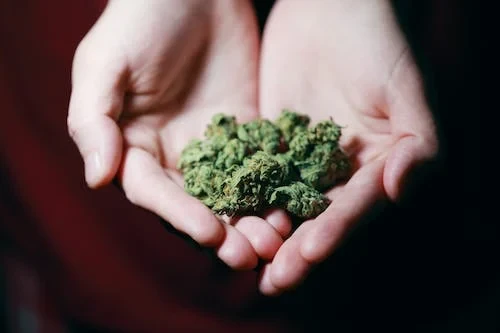
Legal Status
The legal status of THCA remains entangled within the complex web of regulations governing cannabis derivatives. THCA, a natural constituent of the hemp plant and a precursor to the psychoactive compound THC, is subject to regulations that largely align with those governing cannabis in various global jurisdictions.
In the United States, THCA is legal under federal law according to the Farm Bill of 2018, which dictates that hemp and its derivatives are legal as long as they contain 0.3% THC or less on a dry-weight basis.
That said, state laws may vary. Let’s take a look at a specific example.
Is THCA legal in Texas?
The regulations for THCA and other hemp-derived products in Texas generally follow federal laws. However, there is a lack of clear legislation specifically addressing the purchase and use of THCA in the state.
If your THCA product contains less than 0.3% THC on a dry weight basis, it is generally considered compliant by authorities.
In Texas, hemp is not treated as a controlled substance as long as it adheres to the federal requirement of containing no more than 0.3% THC.
It's worth noting that the legal status of hemp and hemp-derived products, including THCA, is still evolving and can be somewhat confusing in Texas and other states. Consulting with an expert can provide clarity before engaging in the purchase and consumption of THCA in Texas.
THCA in Cannabis Products
The presence of high THCA percentages in cannabis products often signifies a rich concentration of this cannabinoid within the item. When cannabis undergoes testing, the THCA percentage reflects the amount of tetrahydrocannabinolic acid present before the process of decarboxylation, where heat transforms THCA into the psychoactive THC.
Therefore, a high THCA percentage only indicates a high level of psychoactive potency if the user intends to heat the product and trigger decarboxylation.
THCA in Different Cannabis Products
THCA manifests in various forms of cannabis products, showcasing its versatility in the industry. It's commonly found in raw flower, where THCA exists in its unaltered state.
Additionally, concentrates such as diamonds, crystalline formations containing a high concentration of cannabinoids, can also boast even more elevated THCA levels. These concentrates are particularly popular due to their potency and the potential for crafting precise and potent cannabis-infused products.
THCA levels in gummies, whose process doesn't trigger decarboxylation, can be useful for those seeking the effects of THCA in its raw, non-decarboxylated form.
Understanding the presence of THCA in different cannabis products is pivotal for consumers seeking specific effects.
Raw THCA flower with elevated THCA levels might appeal to those desiring psychoactive benefits, as flower is easily decarboxylated via heat, while concentrates containing higher THCA concentrations could interest users seeking more potent cannabinoid experiences.
The diverse range of products containing THCA provides consumers with options suited to their preferences, be it for therapeutic use, non-intoxicating effects, or high-potency applications.
Production of THCA Products
The production of THCA-rich flower involves meticulous cultivation methods designed to foster high levels of tetrahydrocannabinolic acid (THCA) within the cannabis plant.
During cultivation, growers prioritize genetic strains known for producing elevated THCA content. These strains are cultivated under specific conditions, such as controlled environments, precise lighting, and nutrient schedules, aimed at maximizing THCA accumulation in the flower.
Growers closely monitor the growth cycle, ensuring the plant reaches maturity without excessive degradation of THCA into THC.
Harvesting occurs at the optimal time, typically before the natural decarboxylation process, ensuring a higher concentration of THCA in the flower. Post-harvesting, the flower can undergo various processes, including drying and curing, to maintain the potency and quality of THCA.
The practice of spraying cannabis flower with additional THCA or cannabinoids remains a subject of concern and debate in the industry.
While some producers might resort to applying concentrated cannabinoid extracts or solutions to enhance THCA levels in the flower, this method raises questions about product transparency, quality, and potential health risks.
Responsible and reputable cultivators prioritize natural cultivation methods to encourage higher THCA concentrations without resorting to artificial enhancements.
This approach ensures the integrity of the product, maintains the plant's natural profile, and aligns with consumer expectations for organic and unadulterated cannabis products.
Consumers seeking THCA-rich flower are advised to source products from trusted and transparent sources that emphasize natural cultivation practices.
Safety and Risks
THCA, in its raw form, is non-psychoactive, differing from its metabolized counterpart, THC (delta-9 tetrahydrocannabinol), which induces psychoactive effects upon decarboxylation.
While THCA doesn't directly elicit psychoactive impacts, its conversion to THC via heat or decarboxylation does result in psychoactivity.
THCA is generally regarded as safe, especially when consumed in its natural state. It's considered non-toxic and lacks the intoxicating properties associated with THC.
As THCA is predominantly found in raw, unheated cannabis, it's often included in the category of non-intoxicating cannabinoids, making it a favorable choice for users seeking therapeutic benefits without psychoactive effects.
Individuals should exercise caution with the potential conversion of THCA to psychoactive THC, primarily through methods involving heat, such as smoking or vaporization and individuals with sensitivities to cannabinoids or those undergoing medical treatments should consult healthcare professionals before using THCA-rich products, as interactions or side effects may vary based on individual health conditions and medications.
Persistence in the Body
Determining the exact duration THCA remains in the body is challenging due to limited research specific to THCA elimination. However, THCA's longevity in the body is believed to be relatively short-lived compared to its decarboxylated form, THC.
The body processes THCA differently, and its metabolites might not remain in the system for extended periods, unlike THC.
The duration THCA persists in the body may depend on various factors, including individual metabolism, dosage, frequency of use, and the method of consumption.
Metabolism plays a pivotal role, as individuals with slower metabolic rates might retain THCA and its metabolites in their system for a longer duration.
Additionally, the concentration of THCA consumed can influence its presence in bodily fluids or tissues, with higher doses potentially taking longer to metabolize and eliminate.
The method of consumption matters significantly. When consumed orally, THCA might take longer to metabolize due to the digestive process.
In contrast, inhaling or smoking THCA could lead to a faster onset of effects but a shorter duration in the system. However, comprehensive studies focusing solely on THCA metabolism and elimination are necessary to provide precise information about its persistence in the body.
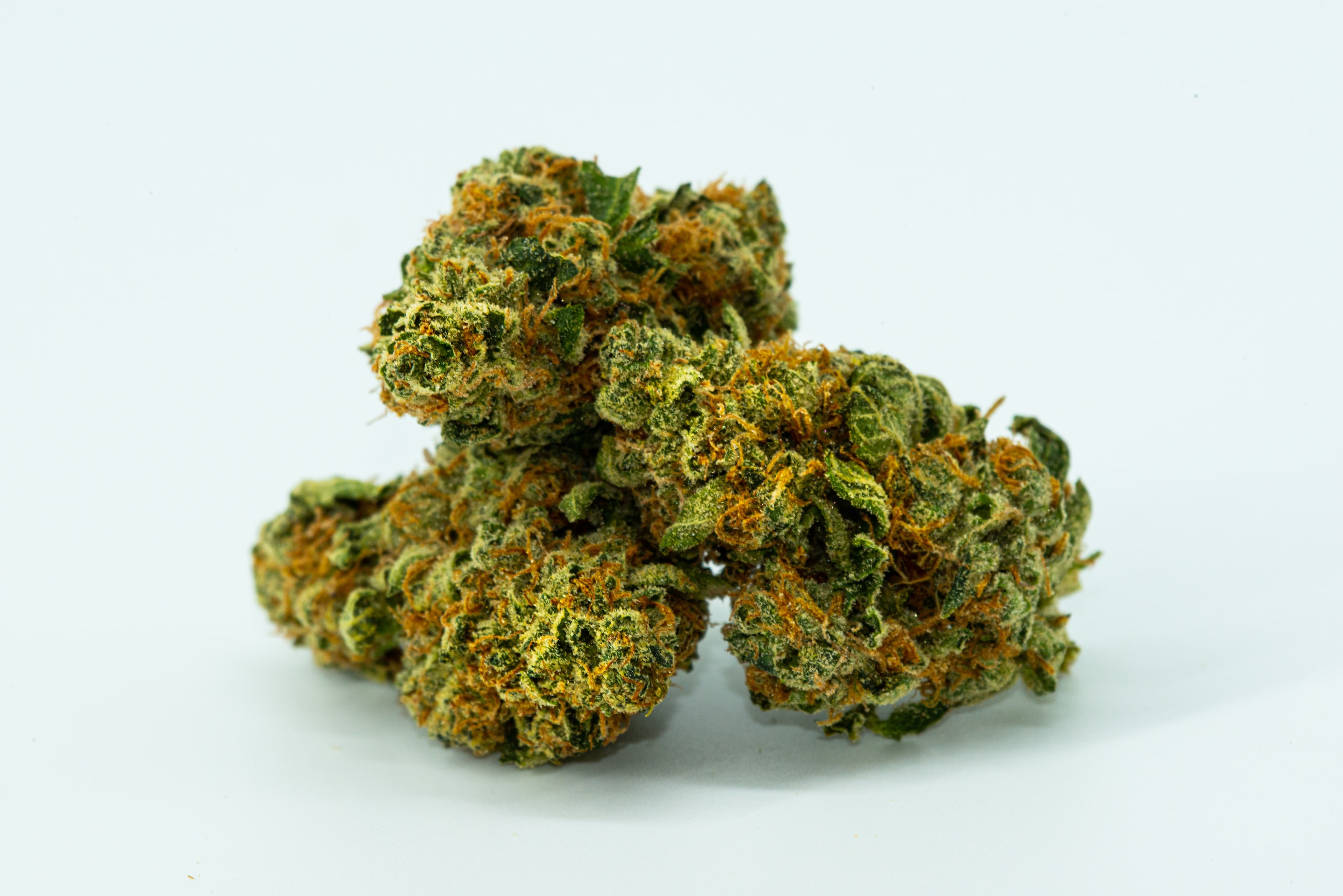
THCA: A Promising Frontier in Cannabis Exploration
Understanding THCA and THC reveals key differences in their chemical composition, effects, and legal status. THCA, as the precursor to THC, lacks psychoactive properties in its raw form but can convert to THC when heated, potentially inducing intoxication.
Whether you want to use raw THCA or THCA that decarboxylates and becomes THC, there’s no wrong choice. It all depends on the effects you’re looking for!


